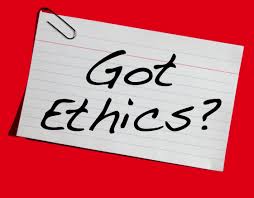I heard Andrew Fastow, the convicted CFO of Enron, discuss his role and experiences in Enron. The title of his presentation was Accounting Rules Versus Principles, and how they applied to the sophisticated financial strategies used to make the Enron balance sheet and income statement look better than reality.
Now, before you throw up your arms and ask why I was even attending a presentation by a convicted criminal, I always try and keep an open mind to see if there are even a few kernels I can learn from someone. After all, the best way to learn how to protect your home might be to ask a convicted burglar.

Accounting Isn’t So Black and White
Fastow’s began his presentation by discussing the grey areas in SEC accounting rules. Fastow was a master at finding loopholes in these grey areas. If Enron’s auditors and legal counsel did not proclaim a strategy as unlawful, then in Fastow’s mind it was permitted, even if it resulted in misleading financial statements. But this is exactly the problem. Are you innocent if your strategy is not prohibited by law? Or, must you also follow the intent of the law? Fastow admitted he was guilty of failing to follow the laws’ intent, even if what he did was not unlawful.
Ironically, Fastow now teaches ethics classes to MBA students and to directors of public companies. Seriously. He presented to the audience the same examples of financial statements he presents in his classes. In each example, you would easily be forgiven if you thought the financial statements were misleading. But in all these cases, the financial statements turned out to be accurate based on SEC accounting principles and law. The problem persists: if you follow the law, you create misleading financial statements.
Before we demand everyone follow the principles, and not just the letter of the law, what if literal application of accounting rules results in an income statement with underreported income or a balance sheet that undereported assets and equity? Do you still follow the rules or do you follow the principles?
How Can We Change Our Approach To Accounting Ethics
When pressed on how to resolve these ethical dilemmas, Fastow did not have much insight. He believes that as nation of laws, this was really the sole means to enforce business ethics. He also felt the “market” will punish companies for this type of behavior. For me, this answer rang hollow. Unfortunately, law enforcement is usually “too late too little”, because it’s usually after employees, retirees, and other relying on the company have lost their savings, their retirement, and their health insurance. All the while, C-Suite executives are able to minimize jail time by paying expensive lawyers to find loopholes in the prosecutor’s case.
While the presentation was interesting and Fastow was able to present the complexities involved in this. I was left a little empty because there does not seem to be any great solution to this issue.
Why This Matters – Every day we are confronted with ethical dilemmas, some minor and some major. How we resolve these dilemmas impacts not just ourselves, but also our friends, family, and employees. Thus, these decisions cannot be made in a vacuum based on simply our own best interest.
Now Do This – Tell me when you were confronted with a dilemma between doing what is right versus dong what is principled, and how your resolved the matter.


